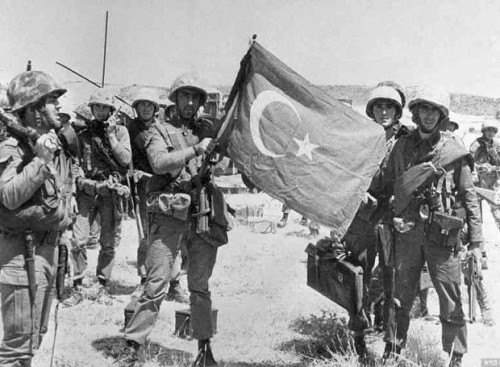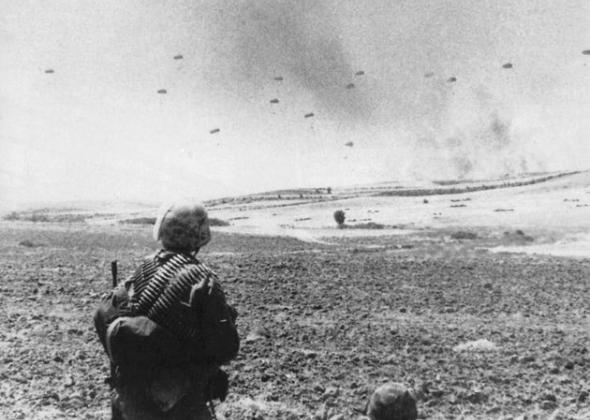
Newsroom
People in Cyprus woke up to the sound of emergency sirens wailing across the island on Wednesday early morning, marking the anniversary of the Turkish Attila operation launched on 20 July 1974, a series of events remembered very differently by the divided nation’s two communities.
Sirens in the Republic of Cyprus were heard early in the morning on Wednesday, at 5:30am, marking the time when 48 years ago Turkish troops landed on the island a week following a Greek-inspired military coup aimed at overthrowing the Cypriot president.
The Turkish operation codenamed 'Ayse went on vacation' is viewed by Greek Cypriots as an 'illegal invasion' while Turkish Cypriots see Ankara’s actions as a 'peaceful intervention' to protect them
Turkish troops moved in and secured a corridor stretching from the northern town of Kyrenia to Turkish Cypriot enclaves in Nicosia, with fighting on the island prompting the Greek military junta in Athens to collapse days later. The weeks that followed were packed with military action, failed ceasefires, and intense diplomacy, with Turkey ending up capturing 37% of the island.
The Turkish operation codenamed “Ayse went on vacation” has been condemned by Greek Cypriots who call it an “illegal invasion” while Turkish Cypriots see Ankara’s actions as a “peaceful intervention” to protect them.
A day before Turkish troops landed at Five Mile Beach, Cypriot president Archbishop addressed the United Nations in New York, where he said “the coup d’etat of the military regime of Greece constitutes an arrest of the progress of the talks towards a solution.”

“As I already stated, the events in Cyprus do not constitute an internal matter of the Greeks of Cyprus, the Turks of Cyprus are also affected. The coup of the Greek junta is an invasion and from its consequences suffer the whole people of Cyprus, both Greeks and Turks,” Makarios said.
On the day of the operation, Turkish prime minister Bulent Ecevit announced that the operation was for peaceful purposes, a position Greek Cypriots have dismissed.
“We are not going to Cyprus for war but for peace, not only for Turks but also for Greek Cypriots,” Ecevit said, adding “I hope there won’t be any attacks on our forces that lead to bloody clashes.”

Turkish troops remain stationed on the northern third of the divided island after Ankara invoked 48 years ago its right as a guarantor power to protect Turkish Cypriots and the constitution of the Republic of Cyprus.
Greek Cypriots in the south maintain that a prolonged and illegal military invasion is at the root of the Cyprus problem and have repeatedly called for Turkish troops to leave the island, with the motto “zero troops, zero guarantees” becoming a highly controversial position during peace talks at Crans Montana in 2017.
Sirens also sounded for a few seconds throughout the Republic last Friday morning at 8:20am, marking the anniversary of the coup.
Ongoing peace talks on the island, sponsored on and off by the United Nations since 1968, were unceremoniously halted recently after the two sides officially stated their diametrically opposite views of a political settlement, with Greek Cypriots in the south renewing their commitment to political equality in a federal solution and Turkish Cypriots in the north insisting on an equal footing throughout the political process to guarantee equal sovereignty between two states.
A UN-sponsored peace referendum in April 2004, held simultaneously on both sides, failed to reunify the island under a federal system, after Greek Cypriots rejected it overwhelmingly days before the Republic was to join the European Union. Only the south is effectively an EU and UN member state, while the north is only recognized by Turkey.































